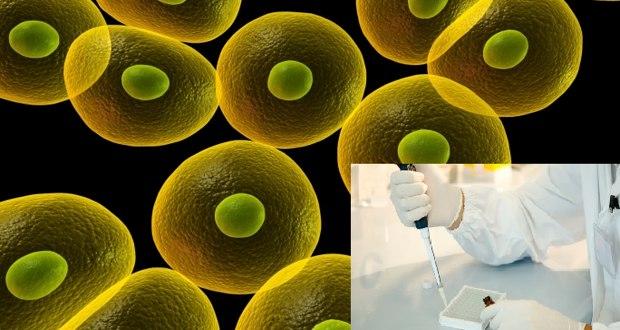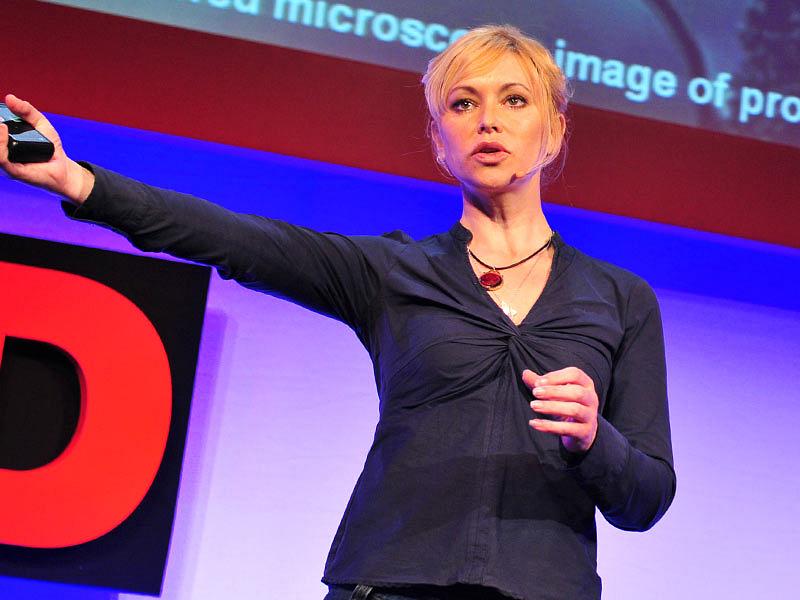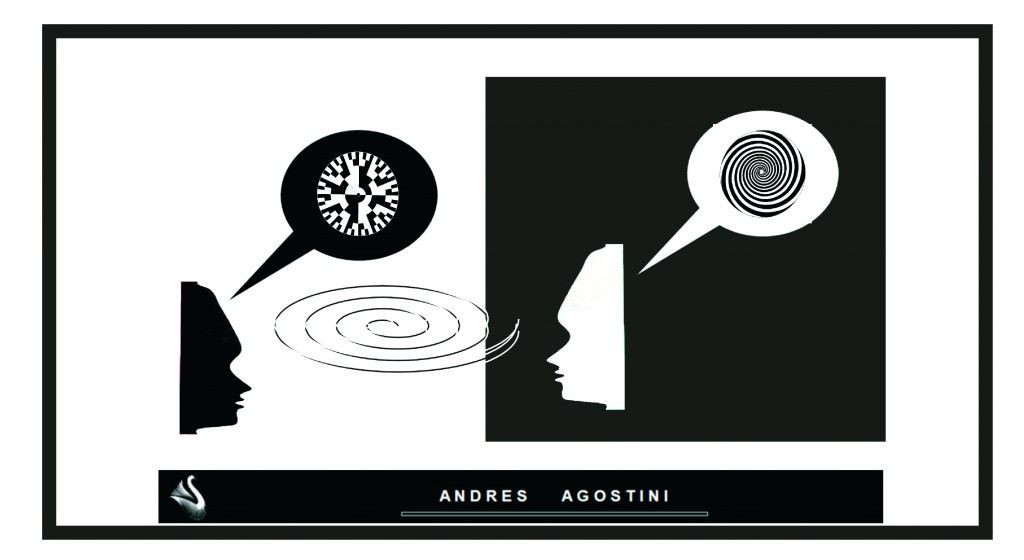Archive for the ‘health’ category: Page 424
Jan 2, 2015
Which Ego? And, ergo, P.Q. By Lifeboat Foundation’s Own Andres Agostini — Amazon, LinkedIn
Posted by Andres Agostini in categories: education, health, science, strategy
Which Ego? And, ergo, P.Q.
There is no “…Ego…”, but SELF-INTEREST WITH SELF ESTEEM, fueled only by SELF OWN WILL POWER and hence directed by OWN ETHOS and OWN COGNITION and OWN SENSING.
BY THE WAY:
P.Q. equates to Prudential Quotient or, better yet, to PRUDENTIAL INTELLIGENCE (P.Q.).
Jan 1, 2015
Dr. Aubrey de Grey: When Do You Want to Die?
Posted by Johnny Boston in categories: health, science

This archive file was compiled from an interview conducted at the SENS Research Foundation in Mountain View, California, February 2013.
“The first person to live to 150 is alive today.” That was the promise featured on a billboard from the insurance giant Prudential in the year 2013. The advertisement was perhaps representative of a growing awareness that the possibility of substantially extended human longevity was, if not around the corner, no longer a science fiction daydream. Later the same year, search leader Google established a company, Calico, specifically dedicated to rethinking aging. It seemed as though the existing paradigm, in which thinking about longevity was all well and good — but actually investing in it crossed over into madness — was starting to crumble.
Despite these outward signs of change however, polls indicated that most people were not interested in investing — financially or emotionally — in longevity. Many saw in longevity research the problems implicit in the message of the Insurance billboard: “If I live to 150, won’t I run out of money? Will I ever be able to retire? Wouldn’t dying at 80 or 90 be just fine, really?”
Continue reading “Dr. Aubrey de Grey: When Do You Want to Die?” »

This archive file was compiled from an interview conducted at the SENS Research Foundation in Mountain View, California, February 2013.
About Dr. Aubrey de Grey: The first Emperor of China, Qin Shi Huang, decided in the 200s BC not to die, and assembled China’s best thinkers and searchers to solve the problem of death. Things did not work out for him. As of the early 21st century, historical efforts at reliable health in old age displayed a reliable pattern of failure. While the eventual crystallization of the scientific method and resulting technology had greatly improved many people’s life expectancy, the longest possible lifespan of an individual had proved to be a much more stubborn thing. Dr. Aubrey de Grey shot to controversial prominence in the 2000s, proposing that for the first time in history, developments in a wide variety of fields made it plausible to advocate for health technology which would significantly tackle age-related disease — possibly allowing the old to live with a higher quality of life and the same low ‘risk of death’ as the young.
Wikipedia:
en.wikipedia.org/wiki/Aubrey_de_Grey
SENS Research Foundation:
sens.org/research
Dec 18, 2014
FutureMed: What is the future of Health?
Posted by Johnny Boston in categories: health, lifeboat, science

This archive file was compiled from audio and video documentation of a gathering of medical professionals, inventors & entrepreneurs, held at Singularity University in California, February 2013. The selected material gives a portrait of a time in which the field of health found itself at a crossroads between the mature medical institutions which had slowly evolved over hundreds of years, and a need to develop and integrate new, more flexible and scalable forms of care. About Future Med: http://futuremed2020.com/ About Singularity University: http://singularityu.org/ GPA on Facebook: on.fb.me/18NiF8z GPA on Twitter: twitter.com/GPA2030
Nov 27, 2014
Marty Kohn, MD: Will your doctor be a Robot?
Posted by Johnny Boston in categories: health, lifeboat, science

This archive file was compiled from an interview conducted on the campus of Singularity University, February 2013. The interview took place at a time where new artificial intelligence systems, such as IBM’s Jeopardy winning “Watson,” were re-awakening the popular imagination in terms of artificial intelligence becoming a visible part of day to day life. The privacy issues regarding the ‘big-data’ that allowed many AI systems to function was also becoming a significant source of controversy. In this piece, Marty Kohn, MD, chief medical scientist on the IBM Watson Medical Team, gives insight into his personal thoughts and feelings regarding how society might both accept and reject the artificial intelligence advances of the coming years.
About the Speaker:
IBM:
researcher.ibm.com/researcher/view.php?person=us-marty.kohn
FutureMed:
futuremed2020.com/marty-kohn/
Jul 4, 2014
GMOs are not the problem, per se
Posted by Harry J. Bentham in categories: biotech/medical, business, existential risks, food, genetics, health, innovation
. @hjbentham . @clubofinfo . @dissidentvoice_ .#tech .#gmo .#ethics . @ieet .
Jun 30, 2014
Artificial Intelligence Is Now Telling Doctors How to Treat You
Posted by Seb in categories: health, robotics/AI
By Daniela Hernandez — Wired

Long Island dermatologist Kavita Mariwalla knows how to treat acne, burns, and rashes. But when a patient came in with a potentially disfiguring case of bullous pemphigoid–a rare skin condition that causes large, watery blisters–she was stumped. The medication doctors usually prescribe for the autoimmune disorder wasn’t available. So she logged in to Modernizing Medicine, a web-based repository of medical information and insights.
Within seconds, she had the name of another drug that had worked in comparable cases. “It gives you access to data, and data is king,” Mariwalla says of Modernizing Medicine. “It’s been very helpful, especially in clinically challenging situations.”
Jun 19, 2014
Mice With MS-Like Condition Walk Again After Human Stem Cell Treatment
Posted by Seb in categories: biotech/medical, health
University of Utah

Mice severely disabled by a condition similar to multiple sclerosis (MS) could walk less than two weeks following treatment with human stem cells. The finding, which uncovers new avenues for treating MS, will be published online on May 15, 2014, in the journal Stem Cell Reports.
When scientists transplanted human stem cells into MS mice, they expected no benefit from the treatment. They thought the cells would be rejected, much like rejection of an organ transplant.
Instead, the experiment yielded spectacular results.
Apr 25, 2014
R U Ready to be Uploaded?
Posted by M. A. Greenstein in categories: big data, biological, bionic, biotech/medical, entertainment, evolution, health, human trajectories, neuroscience, policy, posthumanism, singularity, sustainability, transhumanism
 How has your work, your life, your humanity, been improved by the promise of Big Data?
How has your work, your life, your humanity, been improved by the promise of Big Data?
What apps and online media do you use to upload personal and other info?
Singularity has flopped – that is to say, this week Johnny Depp’s new film Transcendence did not bring in as much as Pirates of the Caribbean. Though there may not have been big box office heat, there is heat behind the film’s subject: Big Data! Sure we miss seeing our affable pirate chasing treasure, but hats off to Mr. Depp who removed his Keith Richards make-up to risk chasing what might be the mightiest challenge of our century.
Singularity, coined by mathematician John von Neumann, is a heady mathematical concept tested by biotech predictions. Made popular by math and music wunderkindt turned gray hair guru of an AI movement Ray Kurzweil, Singularity is said to signify the increasing rate at which artificial intelligence will supersede human intelligence like a jealous sibling. Followers of the Singularity movement (yes, with guru comes followers) envision the time of override in the not to distant future with projections set early as 2017 and 2030. At these times, the dynamics of technology are said to set about a change in our biology, our civilization and “perhaps” nature itself. Within our current reach, we see signs of empowered tech acting out in the current human brain mapping quest and brain-computer interface systems. More to the point, there is an ever increasing onslaught of Google Alerts annoucing biotech enhancements with wearable tech. Yes indeed, here comes the age of smart prosthetics and our own AI upload of medical and personal data to the internet. Suddenly all those Selfies seem more than mere narcissistic postings against the imposing backdrop of Big Data.
Tags: AI, future, Life extension, transhumanism










